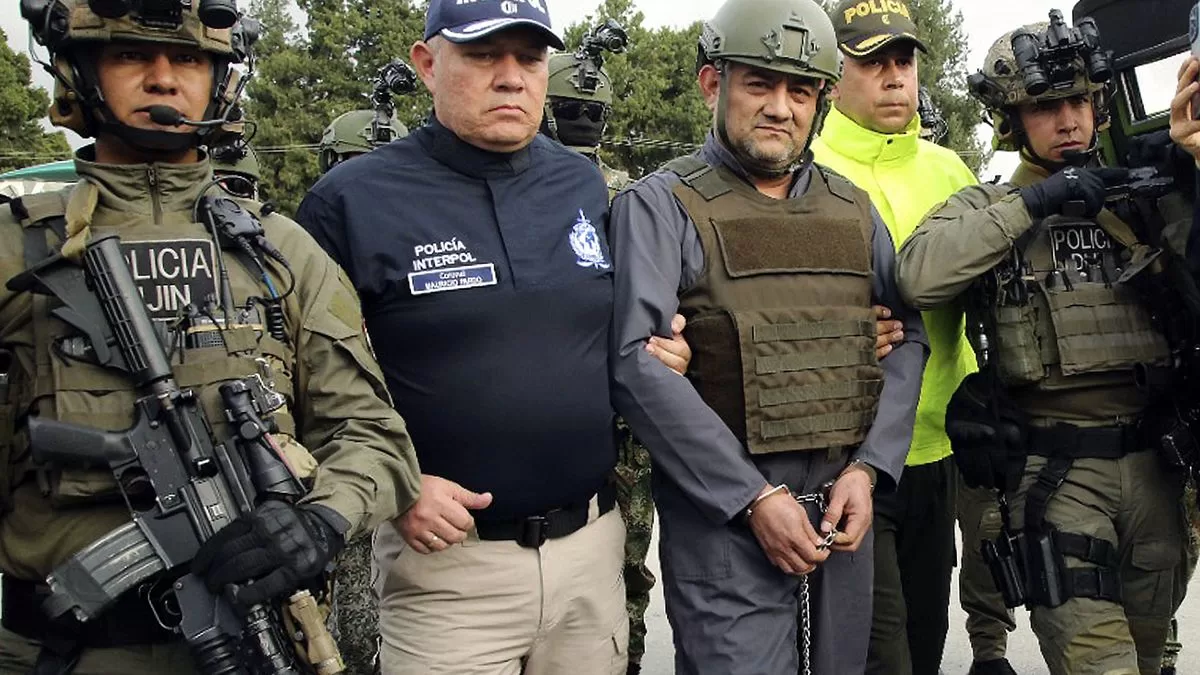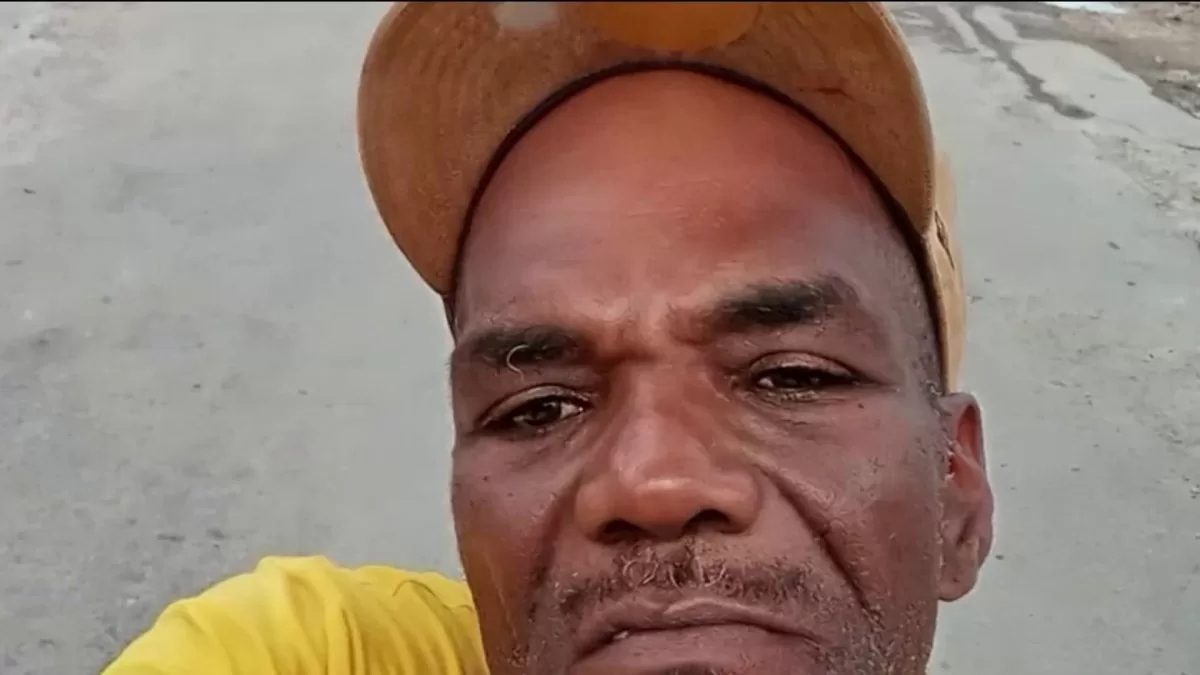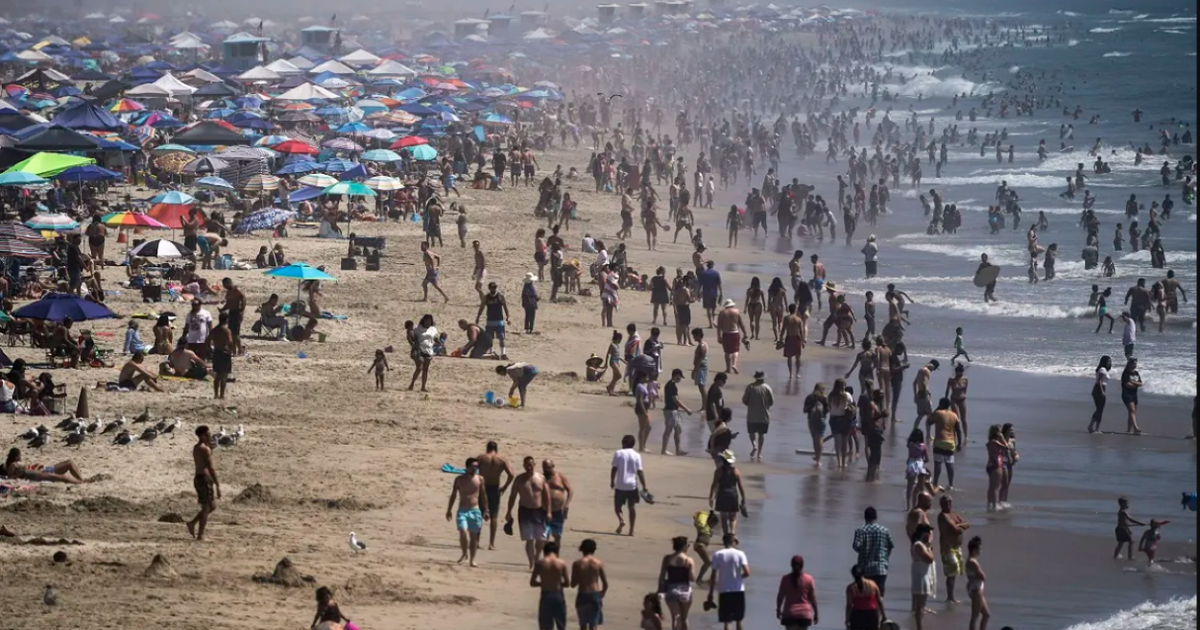On Tuesday, Dairo Antonio Úsuga said he accepted responsibility for the crimes he committed and was sentenced to 45 years in prison in the United States.
Úsuga, 51, apologized to both the US and Colombian governments and to the victims of his crimes.
The former head of the Clan del Golfo pleaded guilty last January to drug trafficking charges, admitting that he oversaw the smuggling of tons of cocaine into the United States and acknowledging that there was a lot of violence.
The United States agreed not to seek life imprisonment in order to obtain his extradition from Colombia, where he faces the possibility of prosecution for his crimes if he is alive when he completes his sentence in the United States.
Úsuga and his lawyers tried to portray him as a victim of the problems that plague Colombia: a man born into rural poverty, surrounded by guerrilla violence, recruited to fight at the age of 16, and affected by decades of watching them die. your loved ones, your comrades and your friends.
“Otoniel” said that being born in a troubled region forced him to grow up within the conflict, and asked the youth not to follow in his footsteps and leave armed conflicts in the past.
But Judge Dora Irizarry, who cited as an example the problems she herself faced growing up in a public housing complex in the South Bronx that was beset by drug dealing and violence, told the defendant that the environment where he grew up was no excuse.
“There are people who grew up in these communities and who have the will and the desire to get out of it by working,” the judge declared, adding that Úsuga had opportunities “to leave that life behind and did not.”
For decades, the lives of almost all Colombians have been affected by the country’s internal conflict. A web of leftist guerrillas, right-wing paramilitaries, drug traffickers and other criminal gangs have battled for control of vast mountainous areas of the country.
The violence has left more than a million dead and millions more displaced, missing or otherwise affected, according to data from the government entity Unit for Victims. The government has tried to sign peace agreements with the armed groups, but has found it difficult to consolidate peace within a complex conflict fueled by rural poverty and lack of opportunities.
Even for a prosecution that has won drug convictions against figures such as Mexican kingpin Joaquín “El Chapo” Guzmán and former Mexican Public Security Secretary Genaro García Luna, Úsuga was one of their main targets. Brooklyn-based federal prosecutor Breon Peace said in a statement that the suffering caused by Úsuga’s “incredibly violent, vengeful and bloody reign” could be incalculable.
At different times, Úsuga allied himself with groups of the left and right, eventually joining the Clan del Golfo, known as one of the most powerful and brutal forces in Colombia, which he eventually commanded. He was the most wanted drug trafficker in Colombia before being arrested in 2021, and has also been wanted in the United States since 2009.
The Clan del Golfo, also known as the Gaitanista Self-Defense Forces of Colombia, is a separate criminal organization from the Gulf Cartel in Mexico. The Colombian group controls a region of routes for the trafficking of drugs, arms and migrants. With military-grade weapons and thousands of members, the group has fought rival gangs, paramilitary groups and Colombian authorities. It financed its operations with “taxes” on the production, storage, or transportation of cocaine through its territory. As part of the judicial agreement, Úsuga agreed to deliver 216 million dollars.
Úsuga ordered the assassinations of his enemies — one of whom was tortured, buried alive and beheaded — and terrorized the population, prosecutors say. They point out that the kingpin ordered a multi-day “strike” in which residents had to stay home or face death after his brother was killed in a police operation, and offered rewards for killing policemen and soldiers, up to 70,000. dollars for a police dog.
“The damage that this man named Otoniel caused to our family is not enough to measure, it is a constant awakening plunged in sadness,” said relatives of the police officer who was shot down Milton Eliecer Flores Arcilla in a letter addressed to the court. The widow of agent John Gelber Rojas Colmenares, who died in 2017, said that Úsuga took away “the opportunity to grow old with the love of my life.”
“I only ask for justice for my daughter, for myself, for John’s family, for his friends and, in honor of my husband, his death must not go unpunished,” she wrote. All the names of the relatives were redacted in the documents filed with the court.
Despite intense searches and rewards offered by the US and Colombian governments, which exceeded $5 million in total, Úsuga was able to avoid capture for a long time, in part thanks to a rotation through a network of safe houses in rural areas.
After his arrest, members of the Clan del Golfo attempted to poison a potential witness against him with cyanide and tried to kill the witness’s lawyer, according to prosecutors.
___
Associated Press writer Megan Janetsky contributed to this report from Mexico City.
FOUNTAIN: Associated Press






